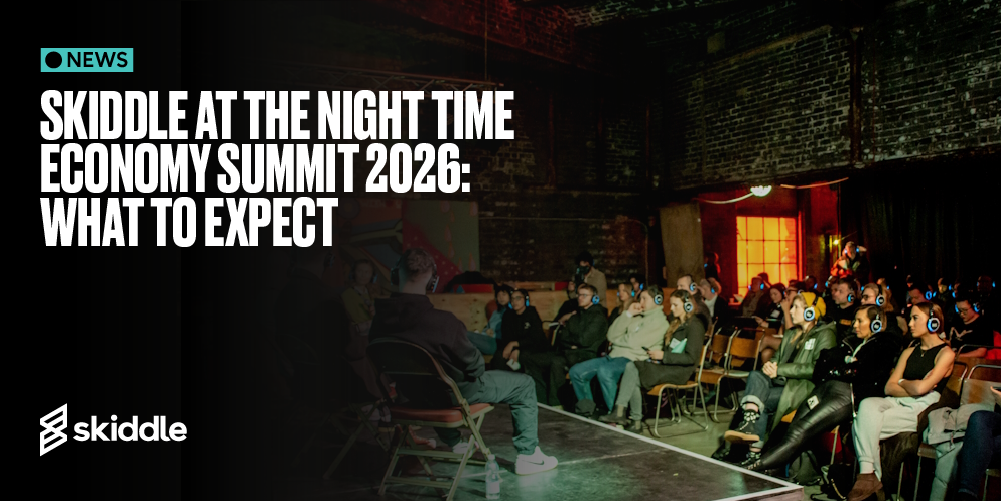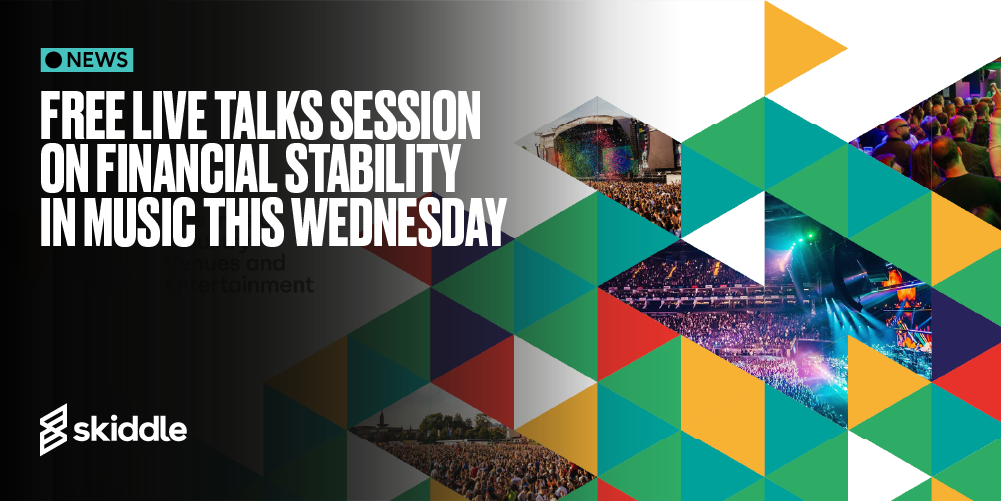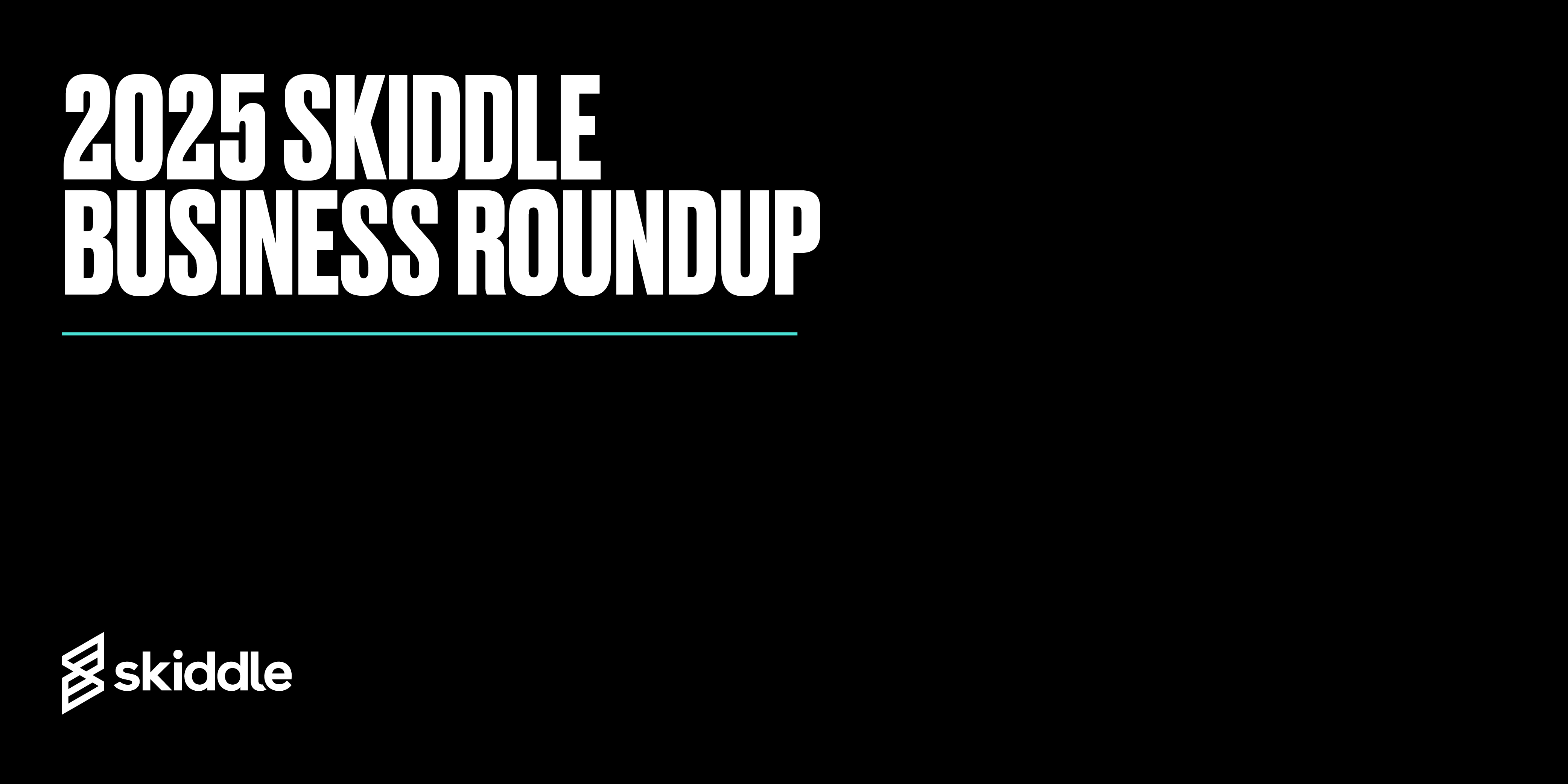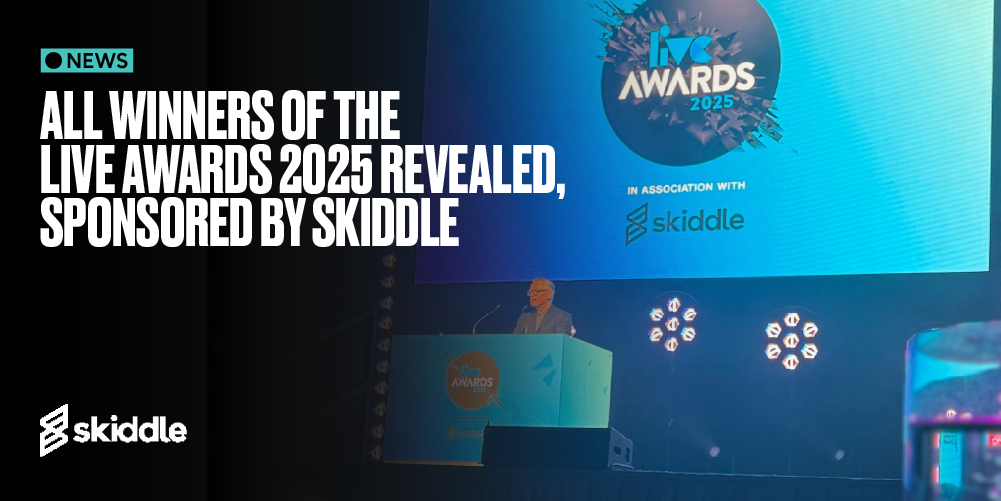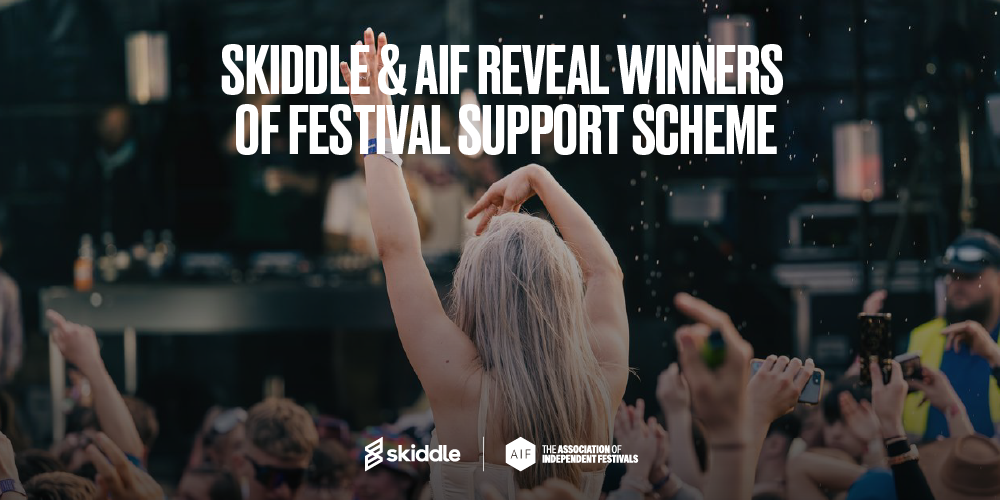- Mental Health
Grace Meadows of Help Musicians/Music Minds Matter on Mental Health Advocacy & Skiddle Collaboration
-
By Dale Grogan
- 16 May 2024
- 10 min read

Continuing with our coverage over this year’s Mental Health Awareness Week, we caught up with the recently appointed head of Music Minds Matter – the sister organisation of Help Musicians – Grace Meadows.
Grace, who previously worked as Development Director for the British Association for Music Therapy, has a strong history of collaborating with different groups and organisations in the healthcare sector to make lasting and meaningful improvements.
A creative at heart – a lifelong musician with an unquenchable thirst for reading and love of radio – she’s helped to direct numerous national campaigns aimed at improving healthcare and resources for many, particularly those affected by dementia. Now, she’s spearheading Music Minds Matter’s mental health and well-being strategy within the music industry.
Bringing her years of experience and knowledge, Grace and Music Minds Matter have graciously agreed to throw their full weight and support behind our latest study of event organisers, venue managers and proprietors. To understand why exactly, we asked a few questions.
Keep reading below to learn more about Music Minds Matter, their role in the industry, and how our landmark survey will be used by the charity to enhance support for those operating in music and live events in the years to come.
Please elaborate on the specific role of Music Minds Matter/Help Musicians within the mental health landscape:
“Music Minds Matter has three key roles within the music industry’s mental health landscape. Firstly, we’re here to meet the needs of those experiencing challenges with their mental health through our services – the listening ear service, peer-to-peer support groups, self-care sessions, and counselling.
Secondly, our role is to raise awareness around mental health and what more we can all be doing collectively to help make music a beacon industry for positive mental health and further destigmatise mental health.
The third is around culture change and supporting organisations and companies to think about prevention and putting in measures that enable positive mental health. Music Minds Matter is the sister charity to Help Musicians, a charity that understands and supports
music creators to navigate unsteady income, make the most of career opportunities and find a helping hand when things go wrong; being there for musicians so music can be there for us. We understand the unique pressures a life in music can create. It puts positive mental well-being centre stage in music and ensures everyone working in the profession has the right tools and support at the right time to stay mentally well.
Music Minds Matter came into being in 2017, starting initially with just the listening ear service within Help Musicians. More and more people were presenting with mental health needs and as Help Musicians didn’t have a specific mental health service or provision, it set up Music Minds Matter. As we saw demand grow, Music Minds Matter became a separate charity in 2022, which by this time had developed the full package of support for everyone working in the industry. Our services have continued to evolve as we respond to the insights we gather. For example, our service looks different now from how it did at the beginning of the pandemic as people’s needs have changed.”

How does Music Minds Mater/Help Musicians utilise funds generated from its initiative to support the mental well-being of individuals within the music and events industry?
“Our funding goes directly towards the provision of the services we provide – the listening ear service, self-care sessions, peer-to-peer groups and counselling – directly supporting those experiencing difficulties and also supporting people to think more pro-actively about how they can best support and maintain positive mental health through the self-care sessions.”
Given Music Minds Matter and Help Musician’s support for our ongoing study, why do you believe it’s crucial to conduct such comprehensive surveys, and how will the findings be used to enhance your efforts?
“Data from surveys such as Skiddle’s is invaluable as it gives us insights into the challenges being faced by event organisers and venue managers. It helps inform how we work with these segments of the industry and helps us to tailor what we offer to meet their needs.
Some challenges are common across the industry; however, we know that different segments also have their own unique challenges. Having a better understanding of these ensures that we are current in our thinking and that we are truly listening and responding to what is important.
It is through collaborations like this that we can galvanise the industry, highlight where organisations and companies are being proactive and support the overall aim of making the industry a place of best practice when it comes to supporting positive mental health.”
As the stigma surrounding mental health diminishes and support systems expand, what future initiatives do Music Minds Matter/Help Musicians believe are necessary to further support individuals in the events industry?
“One of our ambitions is to deliver a large comms campaign making Music Mind Matter more visible across the industry. We know more people could be aware of Music Minds Matter and be using the services available, especially freelancers. Given the number of freelancers in the industry, particularly the events segment, having access to a charity like Music Minds Matter can be crucial.”
With the rise of social media and screen time, how can organisations such as Music Minds Matter/Help Musicians adapt their support strategies to address the unique challenges faced by the new generation of event promoters and venue managers?
“There is no escaping the digital age but one of the things we are keen to do is to work with companies such as Skiddle to provide more opportunities for in-person engagement. This could be providing in-person workshops, training and events, and enabling organisations to feel confident about providing opportunities to come together to discuss mental health. In all our partnerships, we will be looking to create a blended approach as we know there is a desire for both online and in-person engagement.”
What advice or resources would you offer to individuals struggling with their mental health, and how can they access support through Music Minds Matter?
“The Listening Ear service (0808 802 8008) we provide is there 24/7 and is for everyone working in music. There’s no limit to how many times you call and the reason for your call doesn’t have to be music or work-related. You will speak to an accredited counsellor who will offer emotional support, advice and information. Where appropriate they may also signpost you to other specialist services and offer debt or legal advice. We would always say if it’s an emergency or you or someone you know is at imminent risk of harm or is in acute distress, call 999 or go to your local A&E department.
Music Minds Matter also provides self-care sessions and peer support groups, which you can sign up for online, along with a bank of video resources.”
Looking ahead, what fundraising plans does Music Minds Matter have for the remainder of the year to continue its mission of supporting mental well-being?
“We’re working with corporate partners, along with delivering fundraising events and campaigns. Poor mental well-being amongst working-age people is thought to cost £150bn a year. If we spend more on prevention, increasing awareness, training people, identification and treatment, as well as putting preventative measures in place, we would be saving our industry money, as well as the stress of someone experiencing poor mental health and the knock-on consequences of this.”
Finally, could you outline the benefits of participating in the survey for those considering taking part, and how their involvement will contribute to their future well-being?
“Firstly, thank you for taking part in the survey. Your contribution is so valuable as it means we gain a better understanding of the challenges faced by promoters and venue managers. Your roles are key to making the music happen, so we need to be able to best support you through our services.
Your involvement helps inform the decisions we make about how we support you in your work, the partnerships we develop and how we shape our attitudinal change and awareness campaigns. Thank you again for your support.”
Tags
Got a question you need an answer to?
Give us a call on 03333010301 or ask us a question over on the Skiddle Promoter Twitter account by clicking or tapping on the button below. Alternatively, you can also find a list of our most frequently asked questions over at https://help.promotioncentre.co.uk



